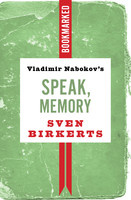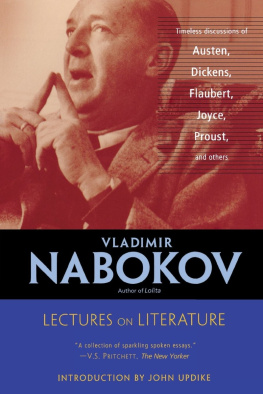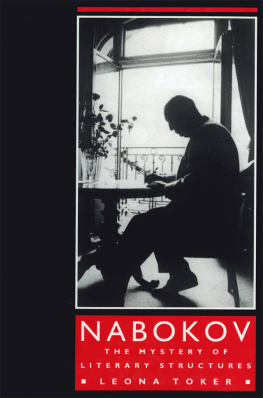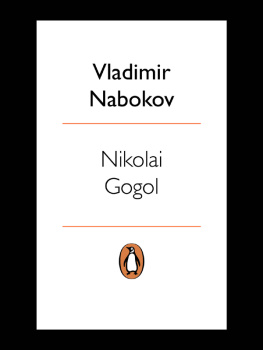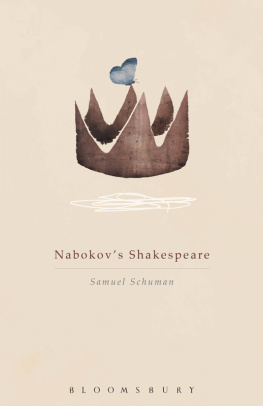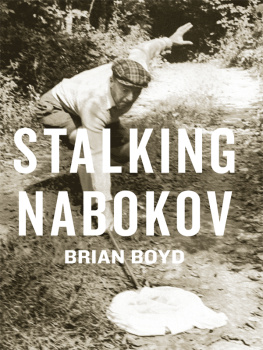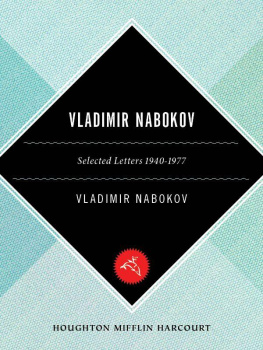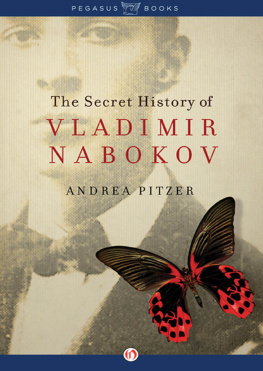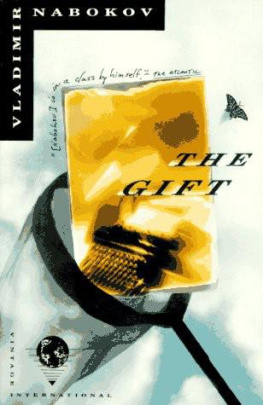Imagining Nabokov

Pages from the diaries of Vladimir Nabokov
Imagining Nabokov

Russia Between Art and Politics
Nina L. Khrushcheva

Frontispiece (p. ii): Pages from the diaries of Vladimir Nabokov are reproduced here by arrangement with the Henry W. and Albert A. Berg Collection of English and American Literature, The New York Public Library, Astor, Lenox and Tilden Foundations; and the Estate of Vladimir Nabokov. All rights reserved, including the right of reproduction in any form.
Copyright 2007 by Nina L. Khrushcheva.
All rights reserved.
This book may not be reproduced, in whole or in part, including illustrations, in any form (beyond that copying permitted by Sections 107 and 108 of the U.S. Copyright Law and except by reviewers for the public press), without written permission from the publishers.
Designed by Mary Valencia.
Set in Adobe Caslon type by Binghamton Valley Composition,
Binghamton, New York.
Printed in the United States of America.
Library of Congress Cataloging-in-Publication Data
Khrushcheva, Nina L., 1962
Imagining Nabokov : Russia between art and politics / Nina L. Khrushcheva.
p. cm.
Includes bibliographical references and index.
ISBN 978-0-300-10886-6 (cloth : alk. paper)
1. Nabokov, Vladimir Vladimirovich, 18991977Criticism and interpretation. I. Title.
PG3476, N3Z6987 2007
813'.54dc22
2007027403
A catalogue record for this book is available from the Library of Congress and British Library.
The paper in this book meets the guidelines for permanence and durability of the Committee on Production Guidelines for Book Longevity of the Council on Library Resources.
10 9 8 7 6 5 4 3 2 1
To Andrei Sinyavsky (Abram Tertz)
I believe that one day a reappraiser will come and declare that, far from having been a frivolous firebird, I was a rigid moralist kicking sin, cuffing stupidity, ridiculing the vulgar and crueland assigning sovereign power to tenderness, talent, and pride.
Vladimir Nabokov
Contents
Acknowledgments
My greatest debt of gratitude is owed to my mother, Julia Khrushcheva, who first made me think about literatures influence on politics, Nabokov, and pretty much everything else. In addition my special thanks go to Jonathan Brent, editorial director at Yale University Press, for accepting this book for the press and providing expert editorial advice. I am also especially grateful to Michael Wood for his exemplary way of reading Nabokov as well as for his intellectual generosity, kind encouragement, and invaluable comments following upon his patient reading of many versions of this manuscript. I would like to thank Caryl Emerson for first introducing me to the genius of Abram Tertz to whom this book is dedicated. I am grateful for her sympathetic, yet often critical reading of its various chapters. I am enormously indebted to Kenneth Murphy for his ready assistance and advice in more instances than I can count. I also want to thank Alla Rachkov for her constant encouragement and support. My sincere thanks go to Yasen Nikolaevich Zasursky for providing me with an opportunity to teach a course on Nabokov at Moscow State University, and to my students there, to whose challenging questions I owe more than I can say. I am grateful to Douglas Greenfield and Nina Bouis for translating parts of this work from the Russian and to Michelle Linder and Katarzyna Kozanecka for helping with the preliminary editorial work. I am also grateful to Margaret Otzel for the meticulous production of the book and to Gavin Lewis for his excellent copyediting and his very helpful editorial suggestions. And last but not least I would like to thank the following people who were kind enough to share with me their own thoughts on Vladimir Nabokov, writing, art, language, politics, Russia and America, in addition to Caryl Emerson, Kenneth Murphy and Michael Wood: Anthony Anemone, Helen Atlas, Edward Baumeister, Boris Gasparov, Natalya Ivanova, David Jacobson, Adam Michnik, Serge Schmemann, Michael Scammell, and Tatyana Tolstaya.
Note on Transliteration and Translations
Bibliographical references and Russian words cited in this book follow a modified version of the Library of Congress system of transliteration (ya instead of ia, for example). Soft signs are omitted from Russian words, and names are given in their standard English form when one exists. Unless otherwise indicated, translations from the Russian are my own.
Abbreviations
BS | Bend Sinister |
DB | Drugie berega (Other Shores) |
EO | Eugene Onegin |
G | The Gift |
ITB | Invitation to a Beheading |
LD | The [Luzhin] Defense |
LOL | Lectures on Literature |
LORL | Lectures on Russian Literature |
NG | Nikolai Gogol |
OCE | On Conclusive Evidence, in Speak, Memory |
PF | Pale Fire |
PPP | Pushkin, ili Pravda i pravdopodobie (Pushkin, or Truth and Truthfulness), in Sobranie sochinenii russkogo perioda |
RLSK | The Real Life of Sebastian Knight |
SM | Speak, Memory |
SO, A | Strong Opinions: Articles |
SO, I | Strong Opinions: Interviews |
VM | The Visit to the Museum, in The Stories of Vladimir Nabokov |
Chronology: Works by Vladimir Sirin and Vladimir Nabokov
SIRIN
1926 | Mashenka (Mary) |
1928 | Korol, Dama, Valet (King, Queen, Knave) |
1930 | Zashchita Luzhina (The Defense) |
1930 | Soglyadatai (The Eye) |
1931 | Otchayanie (Despair) |
1932 | Podvig (Glory) |
1932 | Kamera obskura |
1937 | Dar (The Gift) |
1938 | Laughter in the Dark (in English) |
1938 | Priglashenie na kazn (Invitation to a Beheading) |
NABOKOV
1940 | Lectures on Russian Literature |
1941 | The Real Life of Sebastian Knight |
Next page

